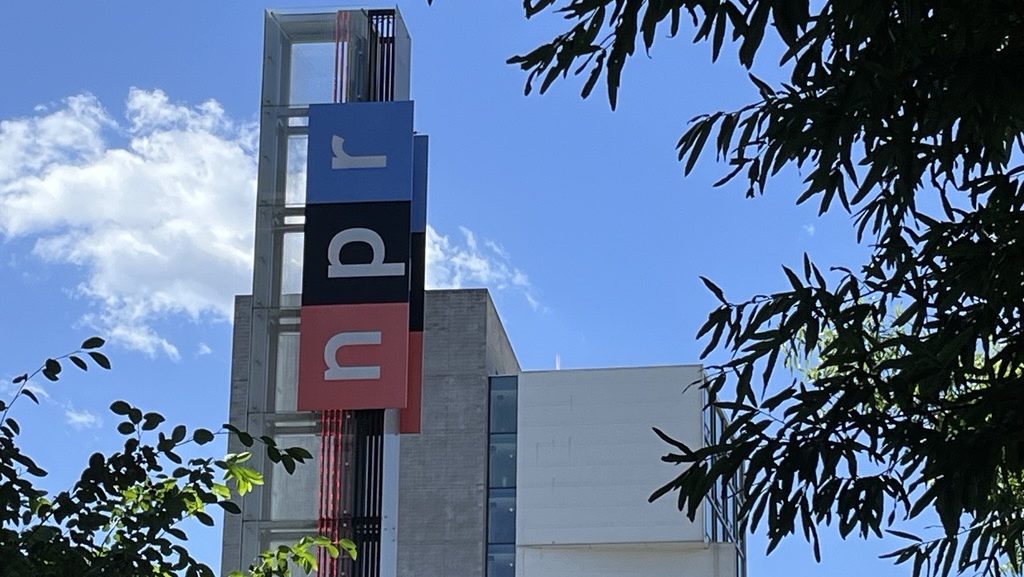The Metro: An update on proposed federal funding cuts to NPR, PBS
Robyn Vincent, Nadia Ziyad, The Metro June 25, 2025Subscribe to The Metro on Apple Podcasts, Spotify, NPR.org or wherever you get your podcasts.

National Public Radio (NPR) headquarters in Washington D.C.
Federal funding for the Corporation for Public Broadcasting (CPB) is the focus of a Senate Appropriations Committee hearing on Wednesday.
The publicly-funded nonprofit, which provides funding to PBS, NPR and its affiliates like WDET, would lose $1.1 billion — two years’ worth of funding that has already been approved by Congress — if the bill passed by the House earlier this month gets Senate approval. It would also rescind more than $8 billion in funding for foreign aid programs addressing global public health, international disaster assistance and hunger relief.
That bill passed in the House by a margin of 214 to 212, with four Republicans crossing the aisle to vote against the package. There were also four Democrats and two Republicans who did not vote on the bill at all.
President Donald Trump has already signed an executive order to eliminate CPB funding, claiming all public media is biased, but the Rescissions Act of 2025 would go beyond that, revoking funding already approved by Congress.
Today on The Metro, we break down what it would mean for public media organizations like WDET if the legislation gets Congressional approval.
Use the media player above to hear the full conversation.
Listen to The Metro weekdays from 10 a.m. to noon ET on 101.9 FM and streaming on-demand.
Trusted, accurate, up-to-date.
WDET strives to make our journalism accessible to everyone. As a public media institution, we maintain our journalistic integrity through independent support from readers like you. If you value WDET as your source of news, music and conversation, please make a gift today.Donate today »
More stories from The Metro
Authors
-
 Robyn Vincent is the co-host of The Metro on WDET. She is an award-winning journalist, a lifelong listener of WDET, and a graduate of Wayne State University, where she studied journalism. Before returning home to Detroit, she was a reporter, producer, editor, and executive producer for NPR stations in the Mountain West, including her favorite Western station, KUNC. She received a national fellowship from Investigative Reporters and Editors for her investigative work that probed the unchecked power of sheriffs in Colorado. She was also the editor-in-chief of an alternative weekly newspaper in Wyoming, leading the paper to win its first national award for a series she directed tracing one reporter’s experience living and working with Syrian refugees.
Robyn Vincent is the co-host of The Metro on WDET. She is an award-winning journalist, a lifelong listener of WDET, and a graduate of Wayne State University, where she studied journalism. Before returning home to Detroit, she was a reporter, producer, editor, and executive producer for NPR stations in the Mountain West, including her favorite Western station, KUNC. She received a national fellowship from Investigative Reporters and Editors for her investigative work that probed the unchecked power of sheriffs in Colorado. She was also the editor-in-chief of an alternative weekly newspaper in Wyoming, leading the paper to win its first national award for a series she directed tracing one reporter’s experience living and working with Syrian refugees. -
-

